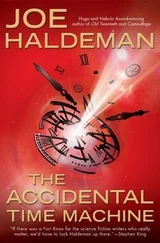The Coordinators’ most visible function is to decide which problems can be resolved at the committee/Cabinet level, and which must be put to a general referendum. But most of their day-today work is budget-arguing and keeping the peace among the various special interests represented by the Cabinet members and outside groups.
That’s the official story. The unofficial is much more interesting, but I’m sworn to secrecy—even to you generations yet unborn. Though I’m sure the secret will be out long before we get to Epsilon. Too many people know; too many others suspect.
In fact, the secret—that the referendum process was a cynical sham—lasted until it was irrelevant. O’Hara hated the deception but accepted it as a condition for employment, and even grudgingly admitted that there had been times in the past when the electorate had been disastrously wrong, and had to be lied to for their own survival.
That O’Hara was allowed into the Cabinet at all was a testimony to the accuracy of the Evaluation Board’s psychometrics, and the assessments of Sandra Berrigan and Harry Purcell. Ten years younger, she would have reacted to the truth with indignation, and gone disastrously public with it. Repeated exposure to human nature had reduced her confidence in people’s ability to control their own destiny.
Still, she was no cynic; like Berrigan (and unlike Purcell) she saw the fakery as a temporary necessity that would be abandoned on Epsilon. Life aboard ’Home, like life in New New, had the illusion of comfort, stability, and safety, but only by virtue of hundreds of complicated inter-relating systems. It could no more be run by democratic consensus than a floater could be driven by committee. Dangerous things happen too fast. Planets were more forgiving.
(Whether leaders would be willing to radically change a system that had worked for generations was another matter.)
Ever since childhood, O’Hara had been conscious of a sense of “destiny” that she knew most other people didn’t have. Remarkable things happened to her on Earth and afterward that did seem to be setting her up as a sort of pivot, a historical nexus. Daniel tried to convince her that it was irrational foolishness, superstition, a small cognitive defect in a brain that was otherwise more than adequate.
Her six years in office tended to confirm Daniel’s interpretation. Everybody else who had been in charge of ’Home had experienced some serious crisis during their terms. O’Hara spent six years waiting for something to happen.
There was plenty to keep her busy, but most of it just required attention to detail and careful delegation. She enjoyed the work, but it wasn’t exciting enough to raise her blood pressure. There was a huge amount of data transfer and analysis going on continually with Key West, which took up a lot of the starship’s time and energy resources, but the day-by-day management of that was the province of various specialists.
During those six years, she was still nominally in charge of Entertainment, but Gunter was actually running most of it.
She had more time than she’d expected to spend on being wife and mother. The loss of John had at first been like losing one leg off a table, but she and Evy and Dan were slowly getting used to the new balance, Dan actually cutting down on his extracurricular affairs. O’Hara and Evy half-joked about finding another fourth, but they never talked about it seriously; never when Dan wasn’t present.
As Evy grew older, she became closer to O’Hara; they had been married fifteen years when she took office. In that time Evy had gone from ravishingly beautiful to merely attractive, even slightly plump, which hadn’t hurt their relationship. She also loved Sandra, the way she loved most children—they were wonderful creatures so long as you could give them back to a parent sooner or later—and was a big help with her, especially after John’s stroke.
(Evelyn came from the Ten line, which had a tradition of marrying young and having children young. She was all for the first but not the second, which had been fine with John and Dan.)
It was no coincidence that Evy’s grandfather, Ahmed Ten, took office at the same time as O’Hara, on Engineering track. She had asked him to put his name up and, like her, he was well enough respected to run unopposed. They worked well together; they had both been on the first two postwar rescue missions to Earth, Zaire and New York. Those had been grim, dramatic episodes; both O’Hara and Ten had been toughened by them. They were ready for anything.
So nothing much happened. Except the first year.
14 July 2112 [19 Wright 323]—Witta Marckese delivered a report today from Cryptobiology that at first seemed like unalloyed good news: the sleep period can now be shortened to as little as twenty years or extended to as much as one hundred, maybe more, without increasing the risk. So John can stay under until nanosurgery is routine again, and there were dozens in similar situations.
Unfortunately, there were hundreds of other people we Powers-That-Be would just as soon not be given that kind of choice. And there is no question of keeping the report secret. Almost everybody in Crypto knows.
The timing is an unfortunate coincidence, since we’re now a little less than forty-eight years away from Epsilon, which until today was the one inflexible period for cryptos. So back in January we thought it was a nowor-never proposition, and we allowed a lot of borderline cases to go in the cans, people still more than marginally useful in the Key West project. Now we could call them back, but twenty years from now, who knows? At the present rate, transferring data visually a page at a time, we’ll still need them. But Ahmed’s confident that we’ll have a dataflow breakthrough any time now.
The next few days and weeks are going to be interesting. Joint Cabinet powwow first thing in the morning to discuss new crypto rules. Morale is not high, a lot of people complaining about busywork and probably wishing they had gone into the can while they were still young enough for it not to be a bad gamble. You can’t really blame them. Trained for science or engineering and now putting in long hours on work any fairly well-educated clerk could do. A lot of them will want to say the hell with it for twenty, thirty, forty years. How many can we afford to lose? Which individuals would we be better off without?
I personally don’t think we need any new rules. The current principle, that anybody be allowed to go crypto unless we can demonstrate that we need him or her, will do.
We just have to adjust the criteria to a level low enough that we need everybody.
That was essentially what the Cabinet and Coordinators decreed: you’re welcome to it if you qualify, but you probably won’t qualify. There were appeals through the legal system, usually based on mitigating family circumstances—“I want to join my husband after all”—and most of them were resolved by the extrajudicial, unconstitutional, use of discreet psychometrics: would keeping her here make her so miserable that it would be counterpro-ductive? Or will she get over it like the rest of us?
There was a vocal minority who claimed, with some justification, that their civil rights were being ignored; that the ship could be run with a skeleton crew of a few hundred. So anybody not crucial to maintaining life support or propulsion should be allowed to do as they wished. Key West would still be there in forty-some years.
The counterargument was speculative but powerful: we can’t risk another information disaster. What if something did happen to Key West? What if our end of the system broke down? It wasn’t just a matter of losing cultural continuity or even technical information. The people in Key West are living on a planet, which is something 97 percent of us have never done. They might know a lot of things useful for starting out on Epsilon; things not in books.
Читать дальше












